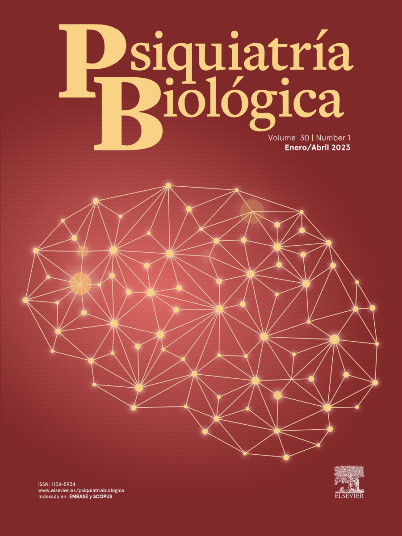La depresión mayor conlleva asociados déficits cognitivos que afectan a funciones ejecutivas, memoria, atención y lenguaje. La comprensión de la neurobiología de la cognición es uno de los retos de la neurociencia actual. El objetivo de este artículo es revisar la evidencia sobre la circuitería neuronal de las principales funciones cognitivas tanto desde un punto de vista de las vías de neurotransmisión de la cognición como de las estructuras cerebrales implicadas en cada una de las funciones cognitivas. Los avances de la neurociencia han permitido establecer que el cerebro humano está constituido por circuitos que actúan de manera solapada. Es fundamental entender los diferentes sistemas de neurotransmisión en relación con el funcionamiento cognitivo, para poder entender su complejidad. Las principales funciones cognitivas que se exponen son el aprendizaje y la memoria, las funciones ejecutivas, la atención y el lenguaje, que son las principales funciones que están alteradas en la depresión mayor. De la revisión se extrae que las funciones cognitivas se basan en la interacción entre diferentes regiones cerebrales en que entran en juego diferentes sistemas de neurotransmisión. Las funciones cognitivas no están localizadas en regiones específicas sino que operan mediante una organización arquitectónica y la comunicación entre regiones cerebrales, que ocurren con diferentes neurotransmisores simultáneamente. Los distintos procesos cognitivos dan fe de la interacción que existe entre los diferentes sistemas de neurotransmisión, y por tanto, incluso aquellas vías relativamente preservadas en un cuadro determinado puede ser importante tenerlas en cuenta como estrategia terapéutica.
Major depression is associated with cognitive deficits, which affect executive functions, memory, attention and language. One of the current challenges of neuroscience is to understand the neurobiology of cognition. This article aims to review the available evidence on the neural circuits of the main cognitive functions from the perspective of both the neurotransmitter systems and the brain structures involved in each of the cognitive functions. Advances in neuroscience have determined that the human brain is constituted by overlapped circuits. It is essential to understand how different neurotransmitter systems interact to give rise to cognitive functioning in order to understand its complexity. The cognitive functions described in this article are learning and memory, executive functioning, attention and language, as these are the functions that are altered in major depression. Cognitive functions are based on the interaction of different brain regions involving distinct neurotransmitter systems. It is not located in specific regions but in an architectural organization. The distinct cognitive processes involve the participation of many different neurotransmitter systems in a variety of brain areas, and therefore, novel therapeutic strategies should take into account not only the altered neurotransmitter system but also unaltered systems.
Artículo
Comprando el artículo el PDF del mismo podrá ser descargado
Precio 19,34 €
Comprar ahora






